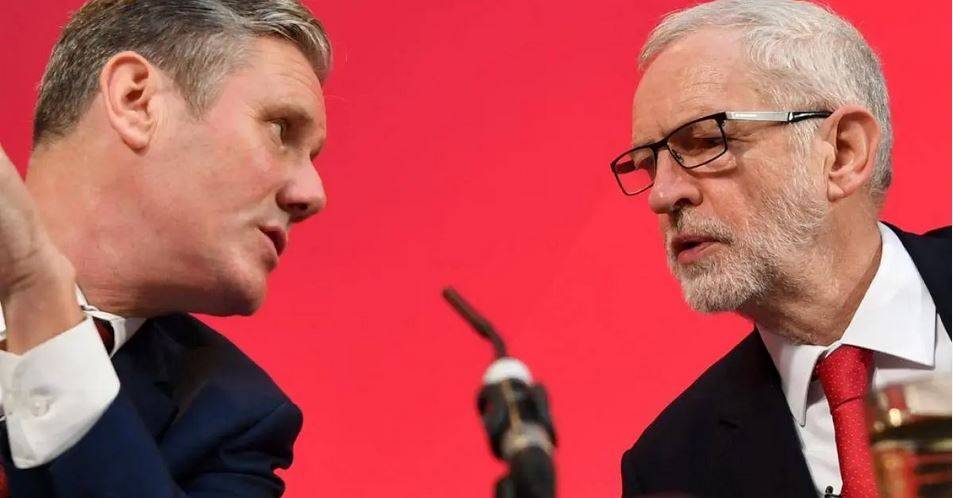724 Views
The Labour Lobby: How Starmer's Party Became a Playground for Billionaires and Pro-Israel Interests
In many democratic systems, political parties rely on external financial networks to cover the costs of their activities—from campaigns to research and policymaking. However, when these contributions depend on foreign entities or lobbies, or stakeholders with international interests, the party's independence and its legitimacy in the eyes of voters can be jeopardized. In recent years, the UK Labour Party under Keir Starmer's leadership has been at the center of debates surrounding financial transparency, the influence of foreign lobbies, and political shifts more than ever before.
What initially appears as a normal process of securing resources for party activities reveals, at deeper layers, signs of external dependencies and diminished independence in key decision-making. Examining cases such as the "Labour Together" and extensive connections with pro-Israel lobbies indicates that the mix of financial resources and policymaking has led the Labour Party towards challenges with serious consequences for its legitimacy and political future.
One of the most significant examples of this situation is the "Labour Together" project. While ostensibly operating as a think tank close to the party, it went beyond intellectual and research roles, interfering in internal party organization and providing auxiliary staff for Labour MPs. According to various sources, this entity received over £730,000 in donations between 2017 and 2020. Delays in declaring a significant portion of these donations led the UK Electoral Commission to impose a hefty fine of £14,250. Although the regulatory body later stated there was insufficient evidence to launch new investigations, this case painted a picture of the complexity of funding within the Labour Party and raised serious questions about its level of transparency.
The role of "Labour Together" was not limited to financial matters. According to critics, it was part of a strategy by Zionist lobbies to marginalize the party's left wing. During Jeremy Corbyn's leadership, the Labour Party emphasized a progressive agenda for social justice, anti-imperialist policies, and public ownership. However, intense media opposition and the escalation of the so-called "antisemitism crisis" placed Corbyn's leadership under unprecedented pressure. Many analysts believe that external political and financial lobbies, by reinforcing this narrative, undermined Corbyn's legitimacy and paved the way for shifting the party towards the center and right wing. In this process, concentrated funding and targeted advertising played a decisive role.
Pro-Israel lobbies have held a special place in this dynamic. Organizations like "Labour Friends of Israel," by holding meetings, funding MPs' trips to Israel, and establishing direct connections with key party members, have significantly influenced the Labour Party's foreign policy. Investigative reports indicate that some members of Starmer's shadow cabinet have received financial support from Israel-related lobbies, and many MPs have had their foreign travel expenses covered by these same sources. This trend has led the party's official stance on the Israel-Palestine crisis to shift towards conservatism and alignment with the policies of London and Washington. The Labour Party's silence in the face of the killing of thousands of Palestinians is a clear example of this shift in political positions.
Wealthy individuals have also played a role in changing this equation. Unlike the Corbyn era, where a significant portion of the party's funding came from small donations and unions, under Starmer, reliance on large contributions from billionaires has increased. These individuals not only provide the financial resources necessary for electoral competitions but also influence the policymaking process through direct connections with the leader's inner circle. For instance, reports show that "Labour Together" spent over £1.5 million for more than a hundred Labour MPs. These contributions included providing auxiliary staff in MPs' offices and direct support for shadow ministers. Critics believe such a trend increases the risk of politicians becoming overly dependent on specific financial sources and distancing themselves from the party's popular base.
These developments have broad consequences for intra-party democracy. First, decision-making becomes increasingly dependent on the wishes of donors, and the power of ordinary members in determining party policy diminishes. Second, the party's legitimacy in the eyes of voters is weakened, as citizens feel that public interests have been replaced by special interests. Third, this process alienates a large portion of the Labour Party's traditional social base, especially the youth, immigrants, and minorities who had high hopes for change during Corbyn's era. Finally, this situation provides a suitable opportunity for right-wing parties to strengthen their position in the political arena by promoting slogans of transparency and independence.
Furthermore, historical precedent also shows that reliance on hidden financial contributions can lead to serious crises for the party. The scandal involving David Abrahams in the 2000s, which involved non-transparent donations to the Labour Party, is a clear example of the damages of this kind of dependency. Now, in the tense political atmosphere of Britain, repeating such experiences could severely threaten the Labour Party's legitimacy.
In conclusion, it must be said that the Labour Party under Starmer faces a fundamental dilemma: on one hand, it has an urgent need for financial resources to compete effectively in elections, and on the other hand, it must maintain its independence and transparency to be recognized as the true representative of the people. Any dominance by foreign lobbies and billionaires close to specific currents, such as Zionist lobbies, will distance the party from its social base and pave the way for the strengthening of right-wingers in Britain. If the Labour Party fails to strike a balance between financial resources and democratic values, the risk of losing its political and social standing is more serious than ever.
Translated by Ashraf Hemmati from the original Persian article written by Amin Mahdavi
https://www.theguardian.com/politics/2025/sep/23/tories-demand-inquiry-into-claims-labours-mcsweeney-misled-elections-watchdog
https://www.independent.co.uk/news/uk/politics/labour-together-donations-mps-morgan-mcsweeney-b2628925.html
https://jacobin.com/2024/06/labour-together-rich-donors-antidemocratic
https://www.declassifieduk.org/foreign-office-met-pro-israel-lobbyist-to-discuss-arms-exports
https://politicalquarterly.org.uk/blog/donations-to-candidate

Comment
Post a comment for this article